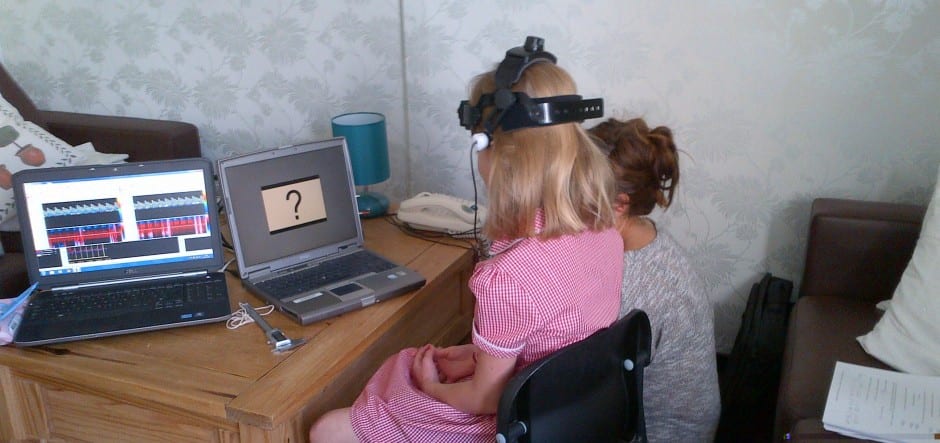Investigating Speech Lateralisation Throughout Development
This project is looking at whether there are differences between the way the left and the right sides of the brain control speech and language.
There has been a lot of research showing that it is predominantly the left hemisphere that processes speech and language however there is also evidence showing that the right hemisphere may have a crucial role to play.
In this study we are interested in whether there is a difference between the sides of the brain that are most active during speech tasks in children of different ages, as well as between children and adults. In our research we use computers to show people words and pictures, and then measure how their brains react. When we compare results from a number of people this allows us to see common patterns in the sides of the brain that are most active during speech.
The Relationship Between Speech and Motor Control
Our bodies are anatomically very symmetrical. If you were to draw a line down the centre of your body from head to toe, each half would probably mirror the other to a large extent. However, research shows us that functionally our bodies are not symmetrical. For example, most people prefer to use one hand over the other for every day tasks, and especially so for complex tasks like writing.
Evidence from research into speech lateralisation across the brain’s hemispheres shows that there are specific neural patterns displayed in people who are left handed compared to those who are right handed.
This study will examine the relationship between hand dominance, motor control and speech lateralisation in the brain. It will use a variety of techniques to assess hand dominance and compare these measures to the patterns shown from fTCD data of speech production.
Speech Lateralisation and motor control in Developmental Co-ordination Disorder (DCD) and Dyspraxia
In this study we are interested in whether there is a difference between the sides of the brain that are most active during speech tasks in individuals who suffer from motor co-ordination difficulties.
If you are over 18 and suffer from Developmental Coordination Disorder (DCD), Dyspraxia, or other motor control impairments then we would like to hear from you. You do not have to have had a formal clinical diagnosis.
All studies shown on this page have received ethical approval from the School of Psychology Research Ethics Committee, University of Lincoln.
